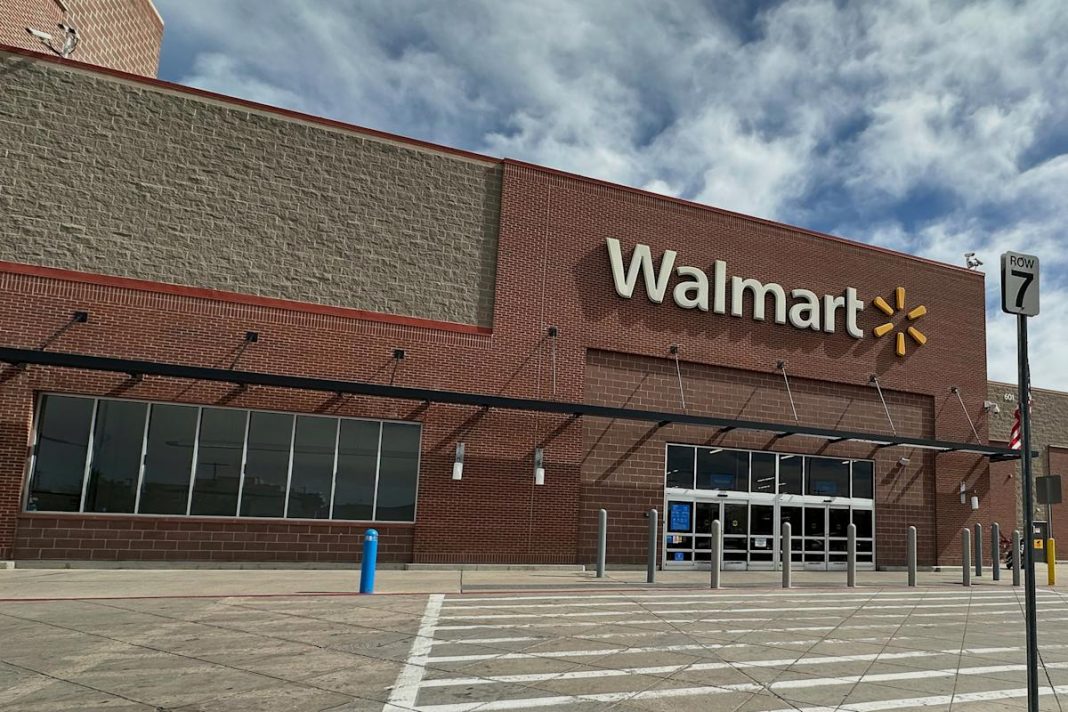Trump Criticizes Walmart Over Tariffs
On Saturday, President Donald Trump took to social media to criticize Walmart, arguing that the retail giant should absorb the extra costs imposed by his tariffs. His statements come amid rising concerns about the impact of increased import taxes on both consumers and businesses.
Impact of Tariffs on Prices
As Trump has escalated import tariffs, he has sought to reassure the public that foreign companies would bear the financial burden of these levies, suggesting that retailers and automakers would not pass these costs onto consumers. However, many economic experts doubt these claims, warning that the tariffs could exacerbate inflation. Just days before Trump’s remarks, Walmart issued a caution that prices for a variety of goods, from everyday items like bananas to essential products like children’s car seats, are likely to rise due to the tariffs.
Trump’s Demands of Walmart
In a post on Truth Social, Trump expressed his frustration with Walmart, the Arkansas-based company that employs approximately 1.6 million workers in the U.S. He insisted that the retail powerhouse should forgo its profits to align with his economic strategy, which he claims will ultimately foster more domestic manufacturing jobs. Trump stated, “Walmart should STOP trying to blame Tariffs as the reason for raising prices throughout the chain. Walmart made BILLIONS OF DOLLARS last year, far more than expected. Between Walmart and China they should, as is said, ‘EAT THE TARIFFS,’ and not charge valued customers ANYTHING. I’ll be watching, and so will your customers!”
Corporate Dilemmas Under Tariff Policies
This incident highlights the difficult choices that major American corporations face due to Trump’s tariff policies, including falling sales and the threat of executive backlash. Trump has also previously warned domestic automakers against raising prices, despite analyses that suggest his tariffs naturally increase production costs.
Consumer Sentiment Affected by Tariff Policies
The ongoing tariffs are contributing to a tense atmosphere for the U.S. economy. A recent preliminary survey from the University of Michigan indicated a drop in consumer sentiment, registering its second-lowest level on record. Approximately 75% of respondents mentioned tariffs in their feedback, as many anticipate further inflation in the economy.
Walmart’s Response to Tariffs
In April, Walmart’s CEO Doug McMillon participated in a high-profile meeting with Trump at the White House to discuss the implications of tariffs. However, despite corporate warnings, the Trump administration has pressed on with its strategy, continually targeting companies like Amazon and Apple that are facing supply chain challenges due to these policies. Walmart’s Chief Financial Officer John David Rainey revealed that car seats manufactured in China, previously priced at $350, might soon see a $100 increase, constituting a staggering 29% rise in cost.
The Limits of Retailers
Railey emphasized, “We’re wired to keep prices low, but there’s a limit to what we can bear, or any retailer for that matter.” His comments came after Walmart announced strong first-quarter sales. This perspective is becoming increasingly relevant as companies navigate the balance between maintaining sales and managing rising operational costs due to tariffs.
Adjustment of Tariff Rates
Recently, the Trump administration reduced its hefty 145% tariffs on China to a more manageable 30% for a limited time, signaling a potential shift. However, tariffs as high as 25% on imports from Mexico and Canada remain in place, primarily linked to issues of illegal immigration and drug trafficking, which have strained relations with the two largest trading partners of the United States.
Standard Tariff Rates and Future Deals
A baseline tariff of 10% has been applied universally to most countries. Trump has assured the public that trade deals are forthcoming, following a surprising move in April that raised import taxes based on trade deficits. He has also mentioned the importance of retaining tariffs as a source of revenue while negotiating terms with the United Kingdom, which appears likely to uphold the 10% rate.
Broader Implications of Tariffs
Tariffs have also been implemented on several products including automobiles, steel, aluminum, and pharmaceuticals. The administration’s inconsistent policies, along with the tariffs themselves, have created a climate of uncertainty within the U.S. economy. Federal Reserve Chair Jerome Powell has responded by maintaining the central bank’s benchmark interest rates until there is greater clarity regarding the state of the economy. Powell has expressed concerns that tariffs can simultaneously stifle economic growth and inflate prices.
Calls for Economic Intervention
In a separate post on Saturday, Trump reiterated his call for Powell to lower benchmark rates, acknowledging that such action could provoke inflation. Yet, the president continues to assert that inflationary pressures have largely dissipated from the economy. He stated, “Too Late Powell, a man legendary for being Too Late, will probably blow it again – But who knows???” through Truth Social, reflecting his ongoing frustration with economic management.
https://www.yahoo.com/news/trump-warns-walmart-dont-raise-155519849.html



